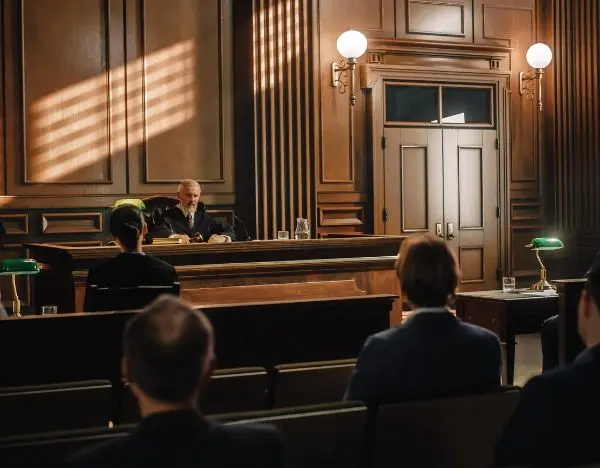Navigating the complexities of the legal system can be daunting, especially when facing criminal charges. In New York State, felonies are categorized into different classes based on their severity, with Class E felonies being the least severe among felony charges. At Varghese & Associates, P.C., we believe in empowering our clients and the public with knowledge about their legal challenges. Understanding what a New York Class E felony entails is crucial for anyone involved in or curious about the criminal justice process in New York.
What is a New York Class E Felony?
In New York, felonies are categorized into classes based on their severity, with Class E felonies being the least severe among the felony charges. Despite being on the lower end of the felony spectrum, Class E felonies are still serious criminal offenses and carry significant legal consequences.
Examples of Class E Felonies in New York
- Fourth-Degree Grand Larceny: Theft of property valued between $1,000 and $3,000.
- First-Degree Aggravated Harassment: Engaging in targeted harassment that causes fear for one's safety or causes physical harm.
- Fourth-Degree Criminal Possession of a Controlled Substance: Possession of a controlled substance in a quantity that exceeds personal use amounts but not enough to constitute higher felony charges.
- Fourth-Degree Criminal Sale of a Controlled Substance: Selling controlled substances under certain conditions or in specific quantities that fall within the Class E category.
Consequences of a Class E Felony Conviction

A Class E felony conviction in New York, while being the least severe category of felony offenses, carries consequences that can significantly impact an individual's life. These consequences extend beyond the immediate legal penalties and can have lasting effects on various aspects of a person's personal, professional, and social life.
Legal Penalties
- Imprisonment: Conviction may result in up to 4 years in state prison. The actual length of imprisonment can vary based on the crime's nature, the defendant's criminal history, and other case-specific factors.
- Probation: In lieu of, or in addition to, imprisonment, individuals may be sentenced to probation for a period of up to 5 years. Probation comes with strict conditions, such as regular check-ins with a probation officer, restrictions on travel, and prohibitions against committing new crimes.
- Fines and Restitution: Fines for Class E felonies can be substantial, potentially reaching thousands of dollars. Restitution, which is compensation paid to the victim, may also be ordered by the court.
- Permanent Criminal Record: A felony conviction will appear on background checks, affecting various aspects of life, from employment to housing.
Employment and Professional Impact
- Job Opportunities: A felony record can make it significantly harder to find employment. Many employers are hesitant or unwilling to hire individuals with a criminal record, especially for positions of trust or responsibility.
- Professional Licensing: Certain professions require licensing, and a felony conviction can lead to disqualification or revocation of professional licenses. This can effectively end careers in fields like law, healthcare, education, and finance.
Social and Personal Consequences
- Housing: Securing housing can become more challenging with a felony conviction, as many landlords conduct background checks and may refuse to rent to individuals with criminal records.
- Educational Opportunities: Higher education institutions may deny admission or financial aid to individuals with felony convictions, limiting educational and career advancement opportunities.
- Voting Rights: In New York, individuals convicted of a felony are ineligible to vote while incarcerated or on parole. Voting rights are automatically restored upon completion of parole, but the period of disenfranchisement can impact civic participation.
- Firearm Rights: A felony conviction results in the loss of the right to own or possess firearms, which is a significant restriction for individuals who previously engaged in hunting or shooting sports.
- Social Stigma: Beyond the legal and practical consequences, individuals with felony convictions often face societal stigma. This can lead to social isolation and difficulties in rebuilding one’s life post-conviction.
- Immigration Consequences: For non-U.S. citizens, a felony conviction can have severe immigration consequences, including deportation, exclusion from admission to the United States, and denial of naturalization.
Mitigating the Consequences
Given the significant impact of a Class E felony conviction, it's crucial for individuals facing such charges to seek experienced legal representation. A skilled criminal defense attorney can work to negotiate plea deals, seek alternative sentencing options like diversion programs or probation, and advocate for the minimum possible penalties. In some cases, legal avenues may be available to seal or expunge the conviction, mitigating its long-term impact.
Understanding the full scope of consequences associated with a Class E felony conviction underscores the importance of legal counsel in navigating the criminal justice system and advocating for the best possible outcome.
How a Criminal Defense Lawyer Can Help
At Varghese & Associates, P.C., we understand the profound impact a criminal charge can have on your life and the lives of your loved ones. Facing a Class E felony in New York is a serious matter, but you don’t have to navigate this challenging journey alone. Our dedicated team of criminal defense lawyers is here to offer you the support, guidance, and experienced legal representation you need during this critical time. Here’s how we can help:
Comprehensive Case Evaluation
- Understanding Your Charges: We start by thoroughly reviewing the details of your case, ensuring you understand the nature of the charges against you and their potential consequences.
- Identifying Weaknesses in the Prosecution’s Case: Our experienced attorneys meticulously analyze the evidence to identify any weaknesses or inconsistencies in the prosecution's case that can be leveraged in your favor.
Tailored Defense Strategies
- Customized Approach: Recognizing that no two cases are the same, we develop a personalized defense strategy tailored to the unique circumstances of your case.
Negotiating Plea Deals: When appropriate, we negotiate with prosecutors to reduce charges or penalties, often leveraging our longstanding professional relationships and negotiation experience.
Protecting Your Rights
- Safeguarding Against Self-Incrimination: We advise you on how to exercise your right against self-incrimination, guiding you on what information to share and when to remain silent.
- Ensuring Fair Treatment: Our legal team is committed to ensuring that you receive fair treatment throughout the legal process, vigorously challenging any procedural errors or rights violations.
Representation in Court
- Skilled Litigation: Should your case go to trial, you can count on our seasoned litigators to represent you effectively in court, presenting a compelling defense and advocating zealously on your behalf.
- Preparation and Support: We prepare you for every aspect of the trial process, from understanding court procedures to testifying on your own behalf, ensuring that you feel confident and informed at every step.
Mitigating Consequences
- Minimizing Impact: Our goal is to minimize the impact of the charges on your life, exploring all available options such as alternative sentencing, probation, or other programs that can serve as alternatives to incarceration.
- Post-Conviction Support: Even after a verdict, our support doesn’t end. We can assist with appeals, expungement, or sealing of records where possible, helping you move forward with your life.
Why Choose Varghese & Associates, P.C.?
Choosing Varghese & Associates, P.C. means choosing a law firm that puts your interests first. Our deep understanding of New York’s criminal justice system, combined with our commitment to our clients, makes us uniquely equipped to handle your case with the competence, empathy, and diligence it deserves.
Ready to Take the Next Step?
If you or someone you know is facing a Class E felony charge in New York, the time to act is now. Contact Varghese & Associates, P.C. for a consultation. Our skilled legal team is prepared to fight for you, offering the aggressive representation and personalized attention you need to navigate this difficult time.
NY Class E Felony FAQs
Can a Class E Felony be sealed in New York?
Under certain conditions, a Class E felony conviction can be sealed in New York. This typically requires that ten years have passed since the sentence was served or probation ended, and the individual has no new convictions. Specific eligibility criteria must be met, and it's advisable to consult with a criminal defense attorney to explore this option.
How does a Class E felony affect future employment in NYC?
A Class E felony conviction can significantly impact employment opportunities. Employers in New York may conduct background checks and might be hesitant to hire someone with a felony record. Certain professions, especially those requiring licenses, might be particularly difficult to enter with a felony conviction.
Is it possible to reduce a Class E felony charge in NYC?
Yes, it is sometimes possible to reduce a Class E felony charge through plea bargaining, especially with effective legal representation. An attorney can negotiate with prosecutors to potentially reduce the charges to a misdemeanor, which would carry less severe consequences.
How can a criminal defense lawyer help with a Class E felony charge in NYC?
A criminal defense lawyer can provide invaluable assistance by:
- Analyzing the evidence and identifying weaknesses in the prosecution's case.
- Develop a strong defense strategy tailored to your specific situation.
- Negotiating with prosecutors to reduce charges or penalties.
- Representing you in court, ensuring your rights are protected throughout the legal process.
What should I do if I'm charged with a Class E felony in NYC?
If you're charged with a Class E felony, it's crucial to seek legal representation immediately. An experienced criminal defense attorney can help you understand your rights, the charges against you, and the best course of action to take in your defense.
Can a Class E felony conviction be appealed in New York?
Yes, a Class E felony conviction can be appealed in New York. If there are grounds to believe that legal errors occurred during the trial that could have affected the outcome, an appeal may be filed. An attorney can advise on the viability of an appeal in your specific case.
What Evidence Is Needed To Convict Someone of a Class E Felony in NY?
To convict someone of a Class E felony in New York, the prosecution must present evidence that proves beyond a reasonable doubt that the defendant committed the crime as charged. The specific evidence required varies depending on the nature of the felony but generally includes:
- Direct evidence: Such as eyewitness testimony, video or audio recordings, or a confession that directly links the defendant to the crime.
- Circumstantial evidence: Indirect evidence that suggests the defendant's involvement in the crime through inference, including forensic evidence, financial records, or behavior patterns that align with those of the perpetrator.
- Corroborative evidence: Additional evidence that supports the credibility of the direct and circumstantial evidence, strengthening the prosecution's case.
The burden of proof lies with the prosecution, and the evidence must leave no reasonable doubt in the minds of the jury or judge regarding the defendant's guilt.
Can You Expunge a Criminal Record if Convicted of a Class E Felony in New York?
In New York, it's challenging to expunge a criminal record entirely. However, under certain conditions, it is possible to seal a Class E felony conviction. The Criminal Procedure Law § 160.59 allows individuals to apply to have their conviction sealed if:
- Ten years have passed since either the conviction or the release from the last period of incarceration.
- The individual has no more than two convictions on their record, only one of which can be a felony.
- The conviction is not for a crime that cannot be sealed, such as certain sex offenses, violent felonies, or Class A felonies.
Sealing a record can significantly mitigate the impact of a conviction, as it generally removes the conviction from public records, making it invisible to most background checks conducted by employers and landlords.

